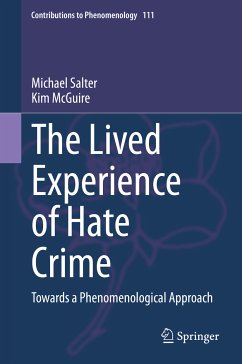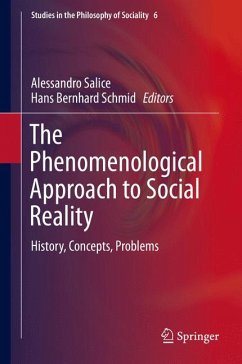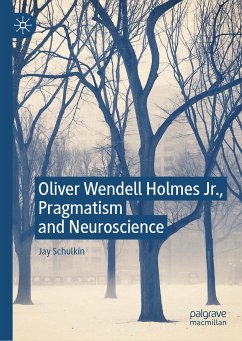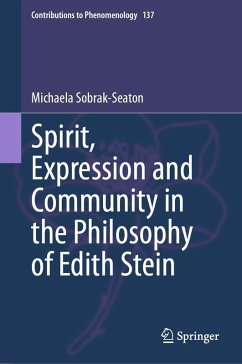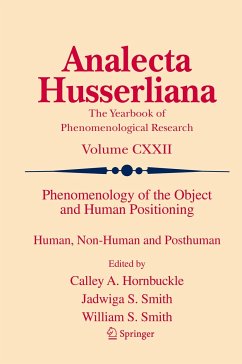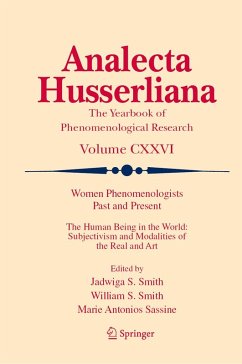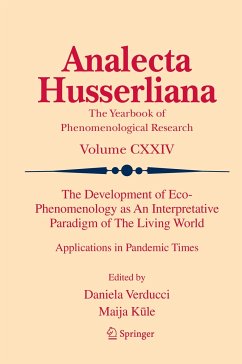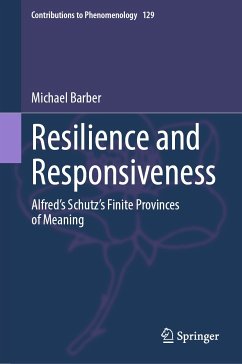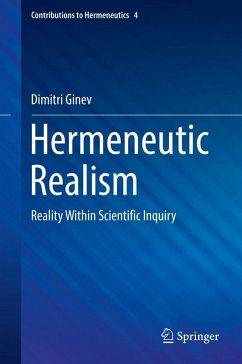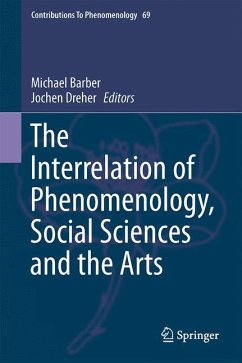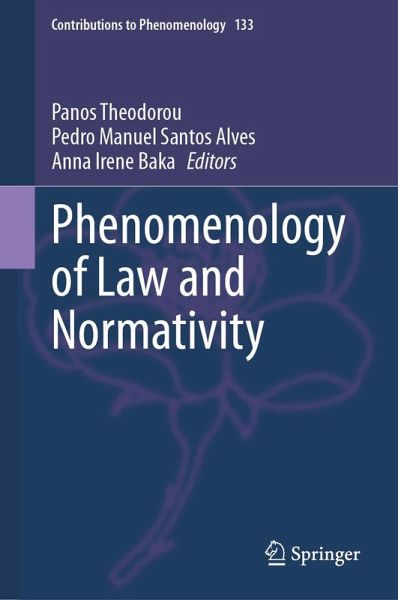
Phenomenology of Law and Normativity (eBook, PDF)
Versandkostenfrei!
Sofort per Download lieferbar
112,95 €
inkl. MwSt.
Weitere Ausgaben:

PAYBACK Punkte
56 °P sammeln!
Against the widespread, mainstream take on the philosophy of law, this collected volume fills an important scholarly gap by introducing a phenomenological account of some of the major questions and themes of jurisprudence such as rights and norms. This volume argues that wherever there is a demand for grounding normativity, the phenomenological method can provide a priori-albeit corrigible-access to essential truths, with reference to beings and their social relationships. The present work reflects upon the place and potential impact on the theory of law and normativity stemming from the pheno...
Against the widespread, mainstream take on the philosophy of law, this collected volume fills an important scholarly gap by introducing a phenomenological account of some of the major questions and themes of jurisprudence such as rights and norms. This volume argues that wherever there is a demand for grounding normativity, the phenomenological method can provide a priori-albeit corrigible-access to essential truths, with reference to beings and their social relationships. The present work reflects upon the place and potential impact on the theory of law and normativity stemming from the phenomenology of Edmund Husserl-largely overlooked by legal philosophers and legal theorists. Further coverage contains those who have built upon these ideas of Husserl such as Martin Heidegger, Alfred Schutz, Edith Stein, Emmanuel Levinas, and Adolf Reinach.
This text addresses new issues and questions from the general perspective of the phenomenology of law. It is a response to those critical of phenomenology by presenting sober arguments in support of its potential for achieving a deeper grasp of legal normative concepts such as rights, claims, obligations, promises, and apologies. Boundaries between law and morality as well as legal and social ontologies are approached from a phenomenological perspective. It appeals to students, researchers, and professionals working in phenomenology, ethics, legal philosophy, and human rights theory and practice.
This text addresses new issues and questions from the general perspective of the phenomenology of law. It is a response to those critical of phenomenology by presenting sober arguments in support of its potential for achieving a deeper grasp of legal normative concepts such as rights, claims, obligations, promises, and apologies. Boundaries between law and morality as well as legal and social ontologies are approached from a phenomenological perspective. It appeals to students, researchers, and professionals working in phenomenology, ethics, legal philosophy, and human rights theory and practice.
Dieser Download kann aus rechtlichen Gründen nur mit Rechnungsadresse in A, B, BG, CY, CZ, D, DK, EW, E, FIN, F, GR, HR, H, IRL, I, LT, L, LR, M, NL, PL, P, R, S, SLO, SK ausgeliefert werden.



